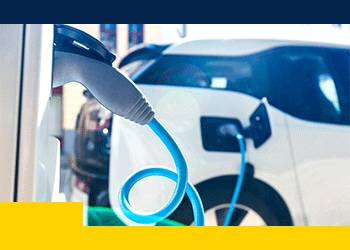On-demand Webinar | Car Electrification with STPOWER K5 Super-Junction MOSFETs

For safety reasons in case of an accident or car servicing, the DC-Link capacitors must be discharged from the battery voltage to below 60V in less than 5s, in compliance with international regulations. Relays and power resistors are typically used for this task, but they are bulky, expensive, and offer no current control.
During this one-hour webinar replay, you will discover how our MDmesh K5 series of very-high-voltage power MOSFETs – with blocking voltages from 650 to 1200V and a wide RDS(ON) range – are ideal for car electrification. And you will understand, through real-life examples, how these can work in Linear mode with high voltages and low currents to ensure fast, controlled, and reliable discharge operations.
Your take-aways from this on-demand webinar:
- MDmesh technologies evolution with focus on our high-voltage MOSFETs and how they benefit automotive applications
- Current legislation, why active discharge is needed and the pros/cons of various solutions
- Using Linear mode to protect your application
To this webinar recording, we added the Q&A session where our expert answered questions which may be of interest for you.
Speaker : |
|

